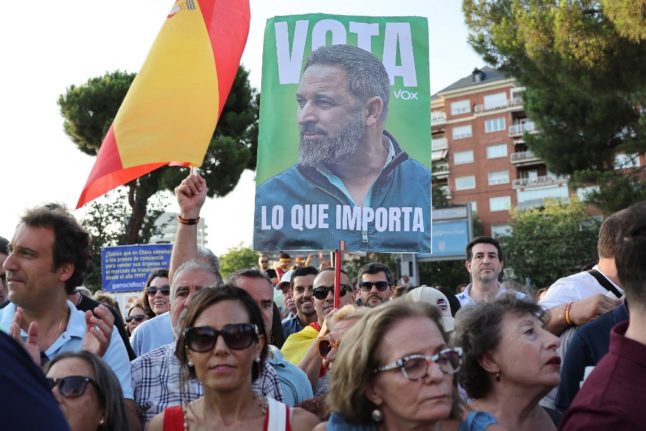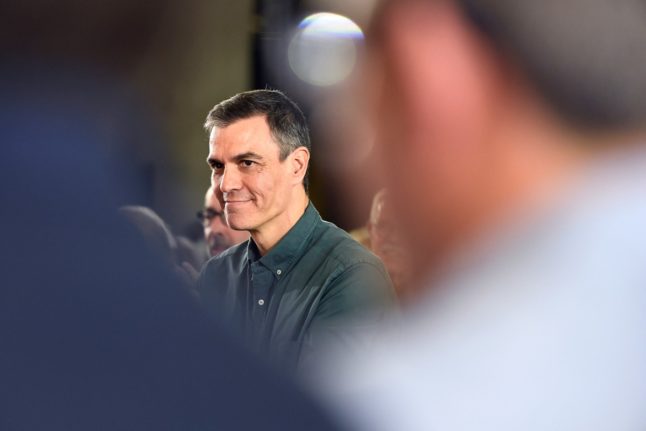Vox will handle two ministries in the region of 447,000 inhabitants: the Ministry of Development and the Ministry of Security, Interior and Emergencies, the latter giving the far-right party the right to the vice presidency.
Vox’s leader in Murcia José Ángel Antelo has not yet been sworn into power but there is little to indicate that the coalition will not go ahead.
“After closing an agreement on Friday to guarantee the governability and avoid a repeat election, there was an exchange of ideas with José Ángel Antelo this morning over a coffee,” tweeted Murcia’s regional leader and PP head in the autonomous community Fernando López Miras, alongside a picture of the two.
“The defence of the region of Murcia’s interests always comes first”.
The first regional PP-Vox coalition took place in Castilla y León in April 2022, followed by Extremadura and Valencia in June of this year, and then Aragón in August.
That means that with the soon-to-be formalised agreement between the two right-wing parties in Murcia, five out of Spain’s 17 autonomous communities will have a regional government where Vox has a share of power.
Prior to 2022, Spain had not had a far-right party in power at regional or national level since the dictatorship of Franco, which ended in 1975.
PSOE party spokesperson Pilar Alegría on Sunday criticised this latest alliance, saying that the PP and Vox are “two sides of the same coin” and that “the PP embrace the politics and ideology of Vox without any shame”.
Following the country’s inconclusive general election held on July 23rd, Popular Party head and prime ministerial candidate Alberto Núñez Feijóo was recently nominated by King Felipe VI two try to form a government, although this bid looks doomed even with the support of 33 Vox MPs as the PP will fall slightly short of an absolute majority.
Feijóo has sought to distance himself from Vox for the cameras, arguing that he should be the Spain’s new Prime Minister as he was the most voted candidate, but ongoing coalitions with the far-right party led by Santiago Abascal prove that the PP is prepared to accept their support if it means they can govern.



 Please whitelist us to continue reading.
Please whitelist us to continue reading.
Member comments